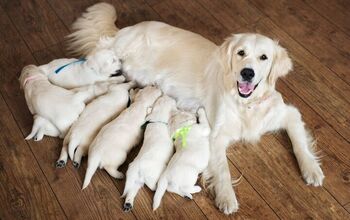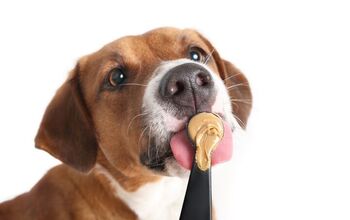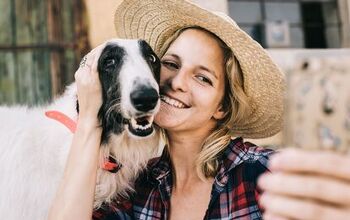Do You Have Spay And Neuter Options?

You might be surprised to know that there are a number of options when it comes to spaying or neutering your dog. Although most vets have a preferred method, and it’s quite uncommon for alternative methods to be carried out, it is your choice. It’s wise to learn about the different options that exist for spaying and neutering, so that you can pick one that you’re comfortable with and you feel is best for your dog.
Spaying Options
- Ovariohysterectomy: This is the most common type of spay surgery, which is where the ovaries and the uterus of a female dog are removed. While this is a tried and tested method, which is known to decrease or entirely remove the chances of your pooch getting a number of medical issues (such as mammary cancer and pyometra – an infection of the uterus), it is a fairly serious operation which will take your dog some time to recover from. Some studies also suggest that disrupting the natural balance of hormones, by removing the ovaries, can lead to other health problems and decrease longevity, but this hasn’t yet been conclusively proven.
- Hysterectomy: A hysterectomy is where a dog’s uterus and parts of the fallopian tubes are removed, but the ovaries are left intact. This means that the dog can’t get pregnant or contract pyometra and won’t go into heat, but all her usual hormones will remain, as they’re produced by the ovaries. It’s the ideal choice for owners who are worried about the effects that lacking hormones has on their dogs. Preliminary studies show that it may increase longevity and reduce the chances of getting certain cancers and other issues, such as hip dysplasia, compared to dogs who’ve had a overiohysterectomy. However, it is still a serious surgery and can take longer and require a larger incision than a classic spay surgery.
- Ovariectomy: This goes in the opposite direction from the hysterectomy. In this kind of surgery, a dog’s ovaries are removed, but her uterus is left in place. The main benefit of this kind of spay is that it’s a much simpler procedure and can be performed with a single small incision, or even using keyhole surgery methods. Although it doesn’t decrease the risk of mammary tumors, no incidences of pyometra have been reported in dogs who’ve had a ovariectomy, so it’s likely that hormones play a role in this condition. Of course, if you’re worried about hormonal issues, this isn’t a great option for you.
Neutering Options
- Orchiectomy: This is the typical method of neutering a male dog and involves removing the testes completely. This has several benefits: firstly it makes the dog sterile, so that he can’t sire any unwanted litters of puppies; secondly removes his chance of getting testicular cancer and decreases the chance of getting prostate problems; thirdly, it can help reduce unwanted behaviors that are linked to testosterone and the mating drive. These hormone-driven behaviors can include humping (you, other dogs, the couch, the mail man…. you get the picture), roaming to find females in heat, aggression toward other male dogs, and urine marking.
- Vasectomy: This is where the vas deferens (the tube linking the testes to the penis, down which sperm travel) is cut or removed, but the testes are left where they are. The only real benefit is that it may be a slightly simpler surgery (although orchiectomy surgery isn’t too complex to begin with). It leaves all the hormones where they are, which means that your dog may exhibit unwanted behaviors due to his testosterone levels. Remember that your pooch really isn’t attached to his own testes (in an emotional sense, that is) so he’s not going to miss them. However, if you do want them left intact, having a vasectomy performed on your dog will at least mean than he can’t father any pups.
Lauren Corona is a freelance writer from merry old England. She specializes in writing about dogs and other critters. Lauren lives near Oxford, with her gorgeous Doberman, Nola. When she’s not tapping away at the keyboard, you’ll find her walking in the woods with Nola-dog, raising money for the Oxfordshire Animal Sanctuary, cooking vegan food, making zines and writing about herself in the third person.

Lauren Corona is a freelance writer from merry old England. She specializes in writing about dogs and other critters. Lauren lives near Oxford, with her gorgeous Doberman, Nola. When she's not tapping away at the keyboard, you'll find her walking in the woods with Nola-dog, raising money for the Oxfordshire Animal Sanctuary, cooking vegan food, making zines and writing about herself in the third person.
More by Lauren Corona
























